In the 1980s, everyone knew who pulled the strings in South African society. A tight-knit group of companies owned pretty much everything and were the locus of all influence – much of which was centralised at Anglo American headquarters at 44 Main Street in Joburg, Old Mutual and Sanlam in the Cape, South African Breweries (SAB), and Donny Gordon’s Liberty Life.
Today, it’s a different story. Many of those companies, like Old Mutual and Liberty, are a shadow of what they once were. Others, like Anglo American, have relocated to London, while SAB is under the thumb of the Brazilian owners of AB InBev. And the way influence is traded has shifted accordingly.
In a bid to pinpoint exactly where the power lies today, non-profit organisation Open Secrets this week published the first of a series of “Who Owns South Africa” reports.
“It’s critical to know who is calling the shots,” says Open Secrets head of investigations Michael Marchant. For instance, he says it is very clear that the financial institutions – the banks and asset managers – have far more clout than in the past.
“This isn’t to say that they use this influence in a malign way in every case, but the danger is they can lean on policymakers and use their vast resources to serve very narrow interests,” he says.
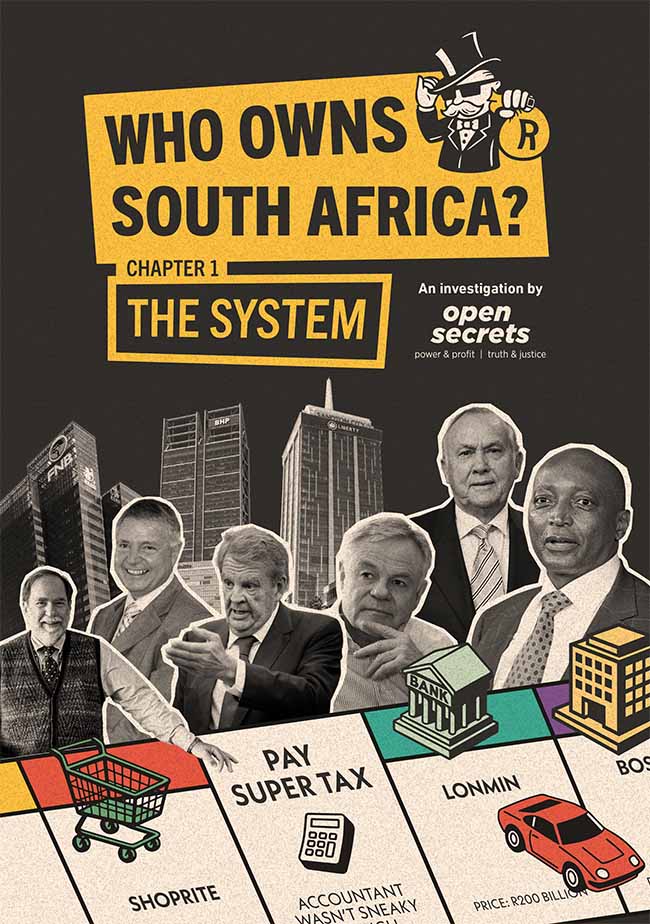
In this first report, Open Secrets takes aim at a number of the ANC government’s economic policies in a bid to answer a question that has confounded the country’s brightest minds: why are we stuck? That South Africa is indeed stuck isn’t a debate – one in three people are unable to find a job, GDP growth has languished under 1% for a decade, and 28-million people live on grants.
One of the ANC’s signature policies, which has come in for a fearsome lashing in recent months, is BEE – and Open Secrets doesn’t shy away either.
“Instead of genuine broad-based empowerment of the Black majority, it has become a system that privileges the existent or aspirant elite, and it has not translated into a transformation of power in corporate South Africa,” the report says.
“[Empowerment] became intertwined with the state and abused in the period of state capture, benefiting politically-connected individuals. Politicians and bureaucrats manipulated tenders, using BEE status as a front to funnel contracts to friends, families, or political allies. In this way, contracts with state-owned entities enriched politically connected figures without the delivery of services.”
There are many damning examples, but Open Secret highlights the 2013 deal in which the Passenger Rail Agency of South Africa (Prasa) picked a company called Swifambo to provide trains for R2.7bn.
From the beginning, red flags were everywhere: Swifambo had no rail experience, and it was only registered as a company weeks before the tender was awarded. In the end, it simply acted as a middleman between Prasa and German company Vossloh, which was selling the trains – buying trains that, almost satirically, didn’t even fit the gauge of South Africa’s train tracks.
It surprised nobody when the Supreme Court of Appeal ruled that Swifambo was “party to a fronting practice, and was not an innocent tenderer” in the purchase of these trains. Neither, of course, was Vossloh. Stories like this do nobody any favours – and they’re alarmingly common.
Worse, Open Secrets concludes, BEE “has also done little to shift the racial make-up of the corporate sector”. There is evidence for this: the Commission for Employment Equity, which examined data from 2023-2024, found that 62.1% of white people occupied top management positions, with Black people occupying just 17.2%.
This is both a cause and effect of the misfiring economy. “While the majority of the population faces constraints to accessing jobs, entrepreneurship, and markets, access to state power and contracts has become a path to accumulation and opportunity,” the report says.
Marchant says that at this point, the evidence is very clear that BEE has failed to achieve its lofty goals. Instead, it has become synonymous with wide-scale corruption and tender rigging.
“This is not because the goals of transformation were incorrect, but rather because it was applied in a very narrow fashion, benefiting a small elite and doing nothing for most South Africans,” he says. “Worse, the government has used it as a fig leaf to hide the fact that few other efforts have been made to change the nature of an economy always built to benefit a small group of people.”
A R1-trillion oligarchy
The reckoning for BEE has been fast-tracked by Donald Trump’s aversion to anything faintly reminiscent of affirmative action, and has been given teeth by his unique ability to hurt South Africa economically by implementing tariffs.
But this has sparked a wider outcry from far more knowledgeable economic experts too, many of whom have declared BEE to be a failure. Notably, two months ago, Wits School of Governance professor William Gumede said the data shows that behind the fig leaf of BEE, more than R1-trillion has been transferred to fewer than 100 politically-connected individuals.
“A small Black political elite, close to the ANC, Cosatu and the SACP, has become fabulously rich through BEE and public service cadre deployment. This has fostered a culture of corruption, using political connectedness rather than merit to generate wealth,” he said.
Gumede said the current version of BEE must be cancelled, since its only achievement has been to enrich a tiny group of political capitalists who “never started a genuine business or managed one, and often set up ‘companies’ simply to secure state contracts or resource licences and BEE shares in the private sector”.
Yet, the ANC and President Cyril Ramaphosa have shown little aptitude for introspection about the failure of BEE. In parliament in May, Ramaphosa said he was “taken aback when I hear that policies of Black economic empowerment militate against the growth of our economy [because] I work from the starting point that our economy was held back over many years by the racist policies of the past”.
He said those who oppose BEE evidently “want to see Black people continuing to play the role of labourers, drawers of water, hewers of wood and consumers only; why can’t Black people be made to own productive aspects of work? Why can’t they be rich as well?”
Which was disingenuous of Ramaphosa, since it intentionally misconceives the argument.
First, it is not a binary in which Black South Africans are either “hewers of wood” or “billionaires”. But, second, nobody argued that Black people can’t be rich, as he implied, or demanded that they be consumers only.
Rather, the critique is crisply that BEE hasn’t made a wide enough group of Black South Africans wealthy, and hasn’t widened the benefits. Instead, Ramaphosa’s party has enabled the maintenance of a hyper-concentrated oligarchy, with just a few new faces.
This is self-evident from the numbers cited in the Open Secrets report: despite 30 years of BEE rules, for every R1 held by a white household, a typical Black household holds just 5c; and the top 0.01% of South Africans – 3,500 people, mostly white – own 15% of the country’s wealth.
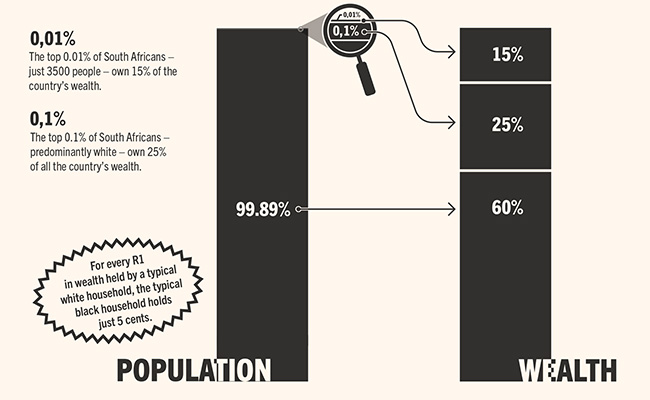
For Marchant, his new project is about isolating precisely these blockages to growth.
“While this first report was about the wider system, we’re going to be drilling down into health care, the financial sector, telecoms, food retailers and the media, among others,” he tells Currency.
“We talk about corporate power, and it’s obvious crucial to see where this lies and how it is exercised, but we also need to look at the power that the state has, and the interplay between them.”
Top image: Rawpixel/Currency collage.
Sign up to Currency’s weekly newsletters to receive your own bulletin of weekday news and weekend treats. Register here.



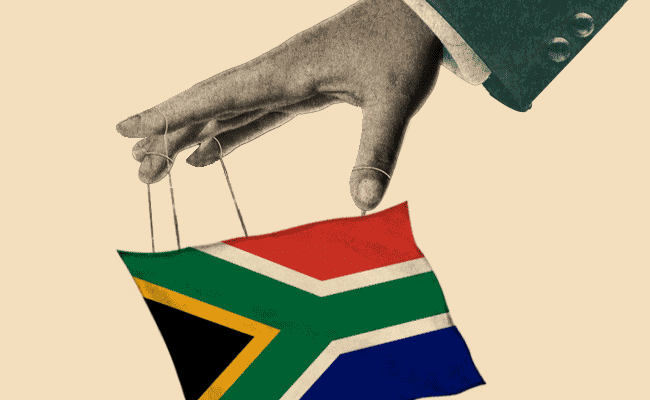


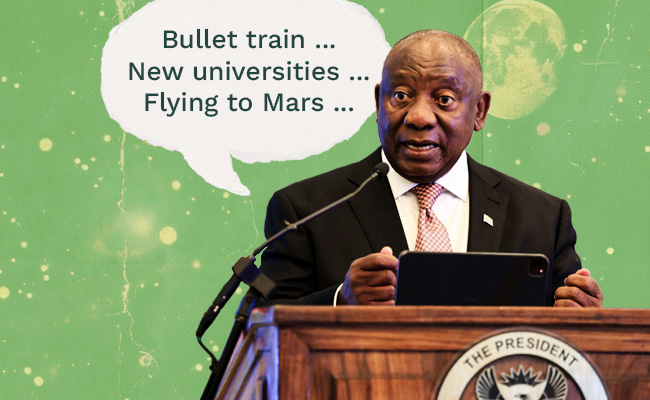


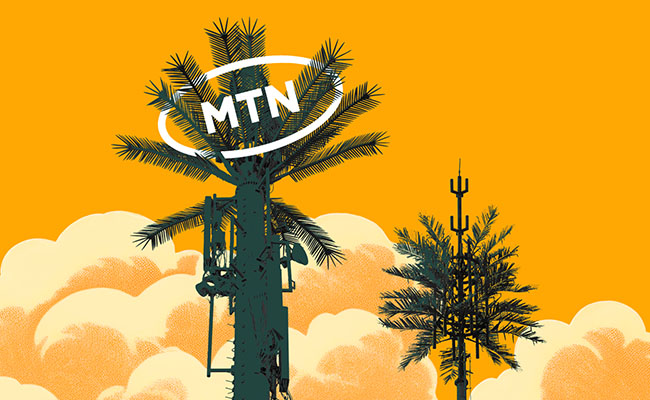

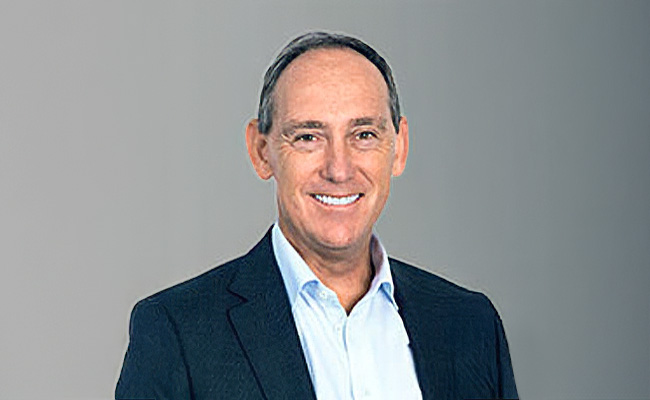



Forget about expanding the acronym “BBBEE” is designed to generate a new monied black elite and not to develop “the masses”. To pretend otherwise is foolish. In effect the policies replicate the worst excesses of apartheid – massive income inequality. However this time a degree of legitimacy is lent by a larger proportion of the elite being “not white”.